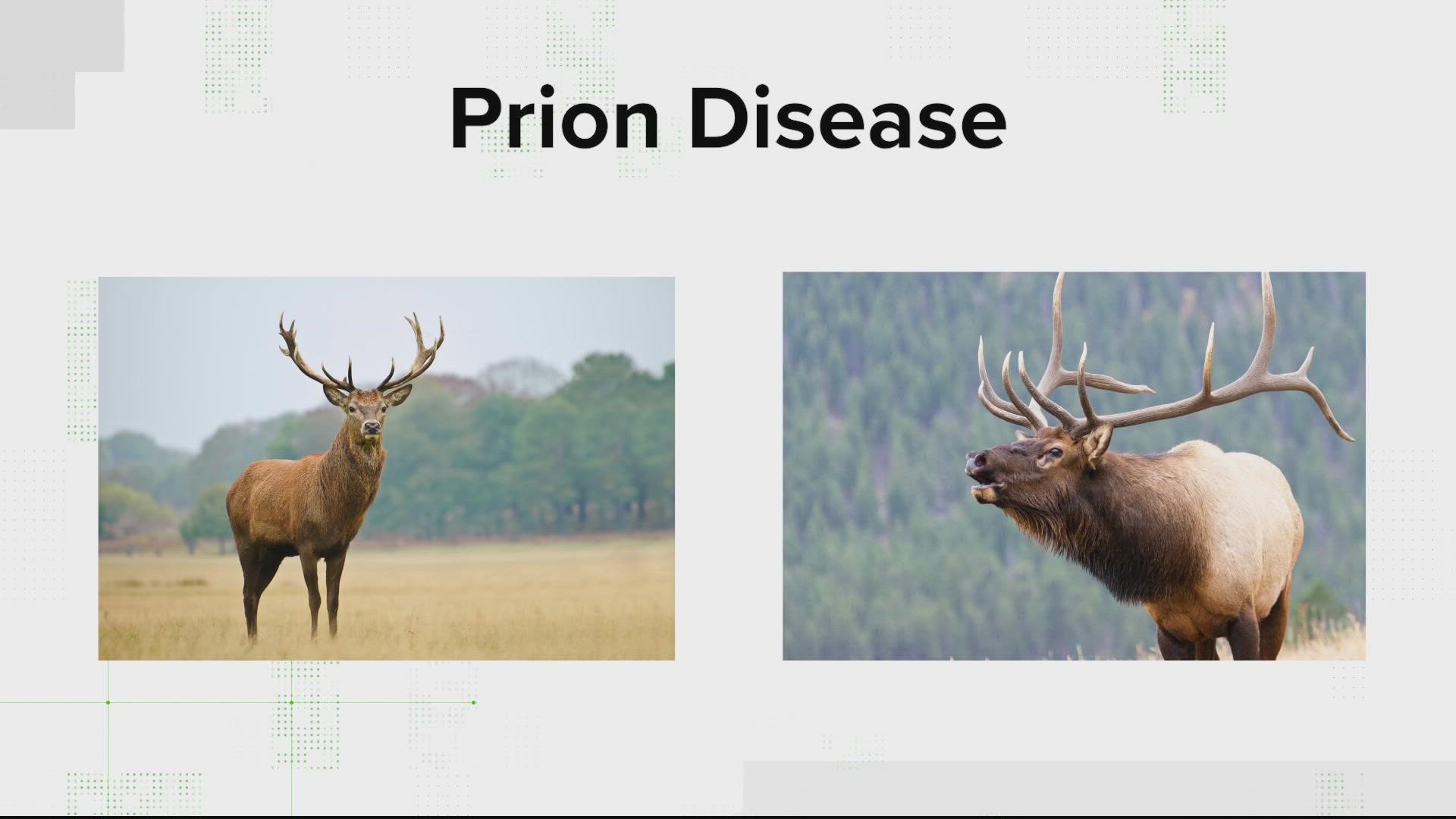FAIRFAX COUNTY, Va. — Last week the Virginia Department of Wildlife Resources (DWR) reported that a deer tested positive for chronic wasting disease (CWD), a progressive neurological disease.
The disease has no cure and is always fatal. That has sparked concerns about the possibility of the disease crossing over to humans. Let’s verify.
THE QUESTION
What is chronic wasting disease and can it infect humans?
THE SOURCES
THE ANSWER
No, as of now there is no evidence that chronic wasting disease can infect humans.
WHAT WE FOUND
Chronic wasting disease is what’s called a “prion disease,” named for the misfolded proteins that cause it. It infects animals like deer and elk and causes neurodegenerative disorders.
Symptoms can develop over a year or more and include drastic weight loss, stumbling gait (meaning an unstable walking pattern), extreme thirst and urination, and reduced fear of people.
Prion diseases are not unique to deer - Creutzfeldt-Jakob disease and Bovine spongiform encephalopathy (BSE, also known as mad cow disease) are both notable prion diseases that infect humans. All three are neurological disorders that are universally fatal.
Prion diseases can spread through bodily fluids like feces, saliva, blood, or urine, as well as contaminated surgical instruments and, in some cases, consumption of contaminated meat.
Once introduced to an area, chronic wasting disease can spread quickly among deer, elk, and moose.
Luckily, there are no known cases of chronic wasting disease spreading to humans. Studies *have* shown it can spread to some monkeys, but findings are mixed.
Still, the CDC recommends not eating meat from animals with chronic wasting disease. Given that prion diseases are untreatable, it’s worth being extra safe.
Dr. Ted Rothstein says that if you see a deer that’s all skin and bones, uncoordinated, and has little fear of humans – it might be infected. Visible symptoms are the most obvious clue to get the animal tested before preparing and eating its meat.
Keep in mind that animals can be positive for chronic wasting disorder before symptoms appear. Make sure to clean equipment and surfaces that come into contact with animal carcasses, and when in doubt, opt for testing.
Even though there is no evidence that chronic wasting disease can infect humans, the experts say it’s still worth taking precautions, just to be safe.

